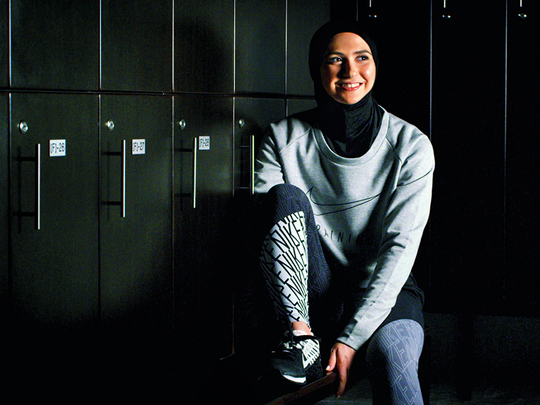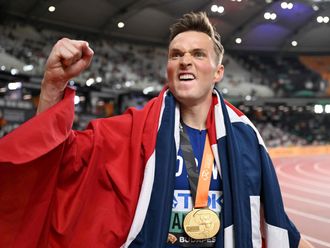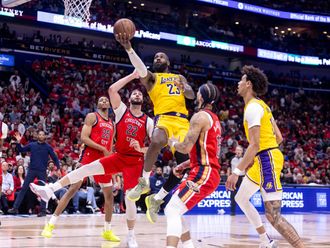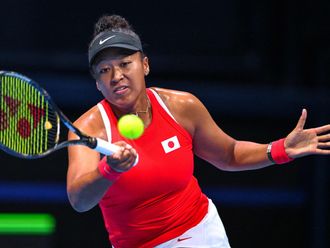
Dubai: UAE figure skater Zahra Lari vows to come back stronger for the 2022 Winter Olympics after failing to qualify for 2018, but she says her involvement in the sport shouldn’t just be judged on results.
“Missing the qualification was disappointing but at the same time, I didn’t qualify because I am just not ready yet,” said the first Emirati to compete internationally, and the first figure skater to wear a hijab.
“I started skating at a very late age and have only trained professionally for a few years,” added the 23-year-old from Abu Dhabi, who first started skating at the age of 13.
“This means that I must work even harder, be smart with my plan and at the same time take care to prevent injuries.
“I am determined, have the confidence, passion, dedication and willpower for the next four years. I will be stronger and ready for 2022. That is my goal and focus,” she told Gulf News in an email interview.
Qualifications and medals aren’t the only thing that drive Lari however, who also cites inspiring women from the region to fight prejudice and take up sport.
That is why she was recently chosen by Procter and Gamble to take part in their ‘Love Over Bias’ campaign to promote equality.
Having been docked points on her international debut in Italy in 2012 because her hijab didn’t meet costume criteria, Lari is considered the perfect example for this cause after she appealed to the International Skating Union (ISU) and successfully got the rule against headscarves overturned.
“I feel that I am a good ambassador for this campaign, because I focus on staying strong and what matters to me; the fact that I’ve made changes to the sport and I’m still pursuing change for how Muslim women are perceived in sports is the main factor.
“No one should ever be excluded from anything due to religious beliefs, especially in sport. We must all accept one another and truly see the likeness that we all have and never dwell on the differences.
“The judging deduction was a simple and innocent ignorance for sure. I know the same panel of judges and they are truly the kindest people. I had no hard feelings about it then and do not now.
“I know that with the world evolving and exposure to different types of people, it takes time to understand them and maybe accept them. As long as we are moving forward with this acceptance, the world will be more loving, caring and better place.
“The stigma of being the ‘hijabi figure skater’ will always be there. It is part of me and my journey. However, my hijab doesn’t define who I am or what I want to achieve in life.
“It is part of my clothing that I choose to wear for the beliefs that I have. At competitions I am being judged for my skating. If my scores are low, it’s because my skating wasn’t up to par.
“As I continue to develop my skills and better my abilities in the sport, my scores will increase. This is the normal process. I am no different to anyone else.
“My results are very important to me; they define where I am in my sport and what I need to do to improve. At the same time, making a difference in the world is very important to me. I believe that the abilities and strength of girls around the world must be taken seriously.”
The 2018 Winter Olympics ended in Pyeongchang in South Korea last month and the next edition of the Games will now take place in Beijing, China in 2022.











